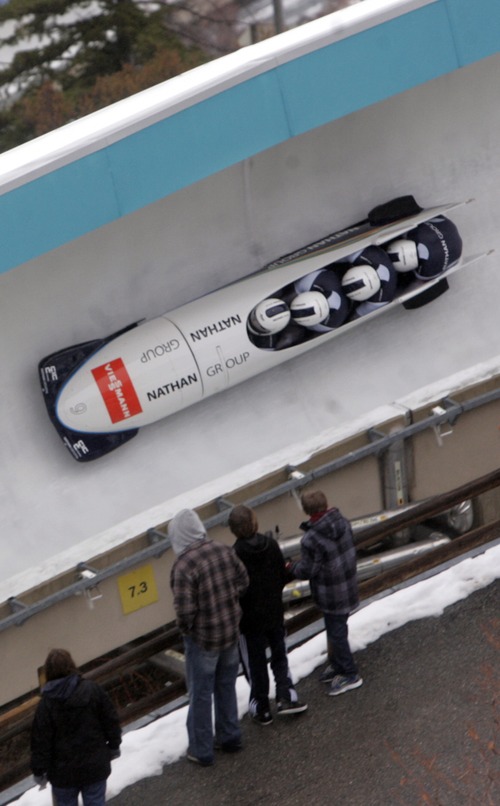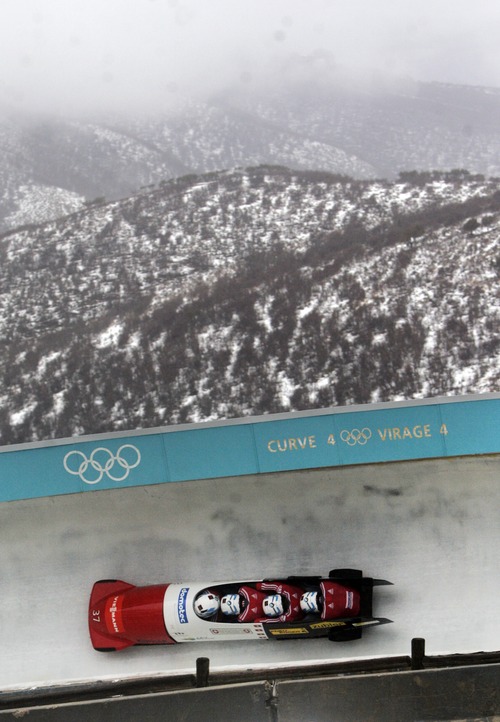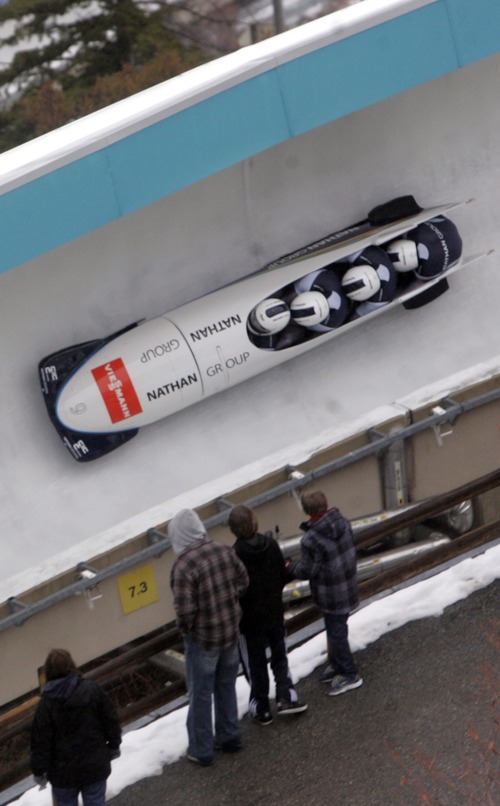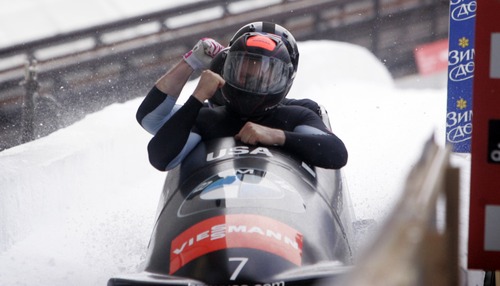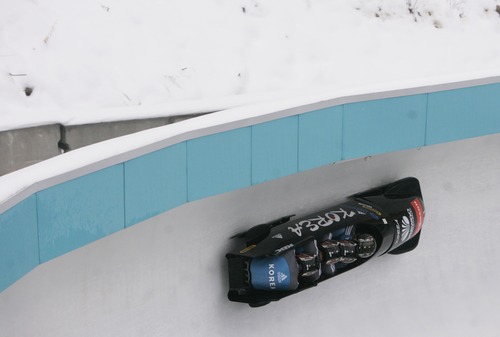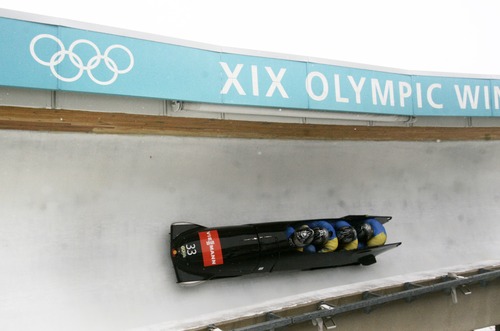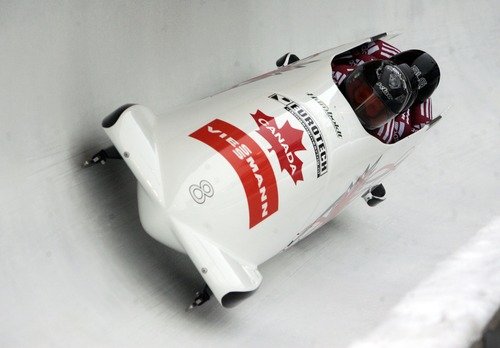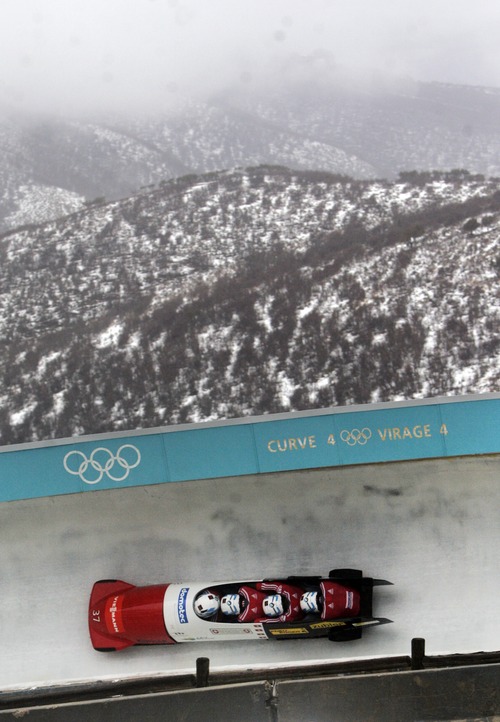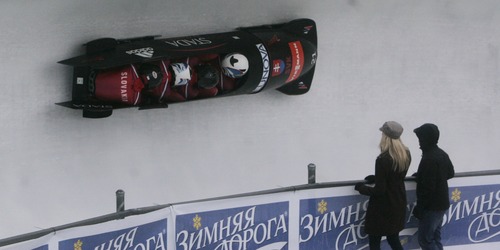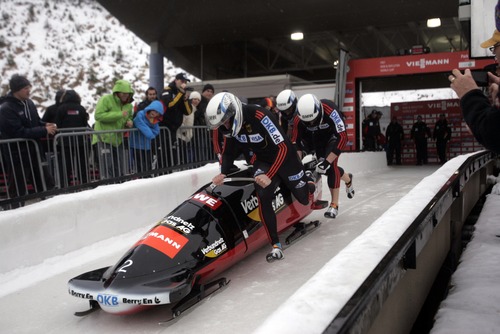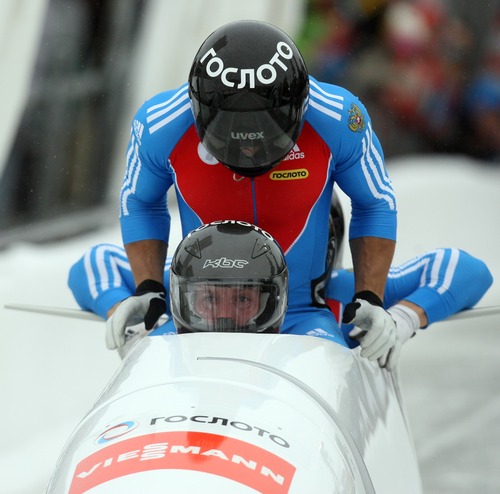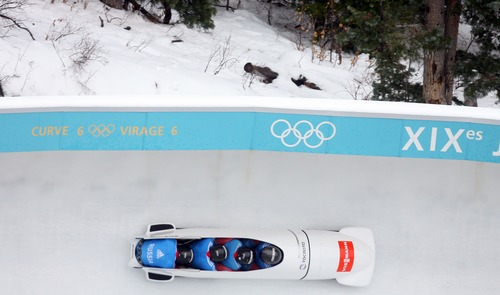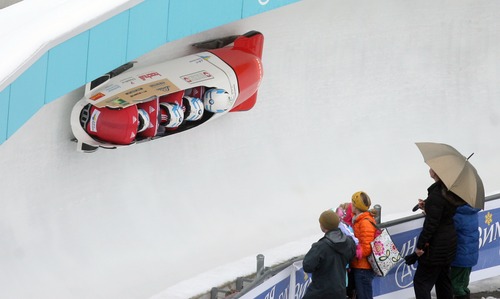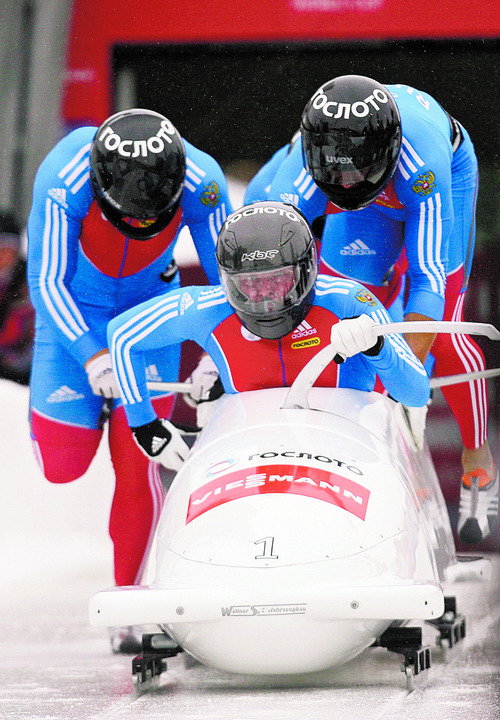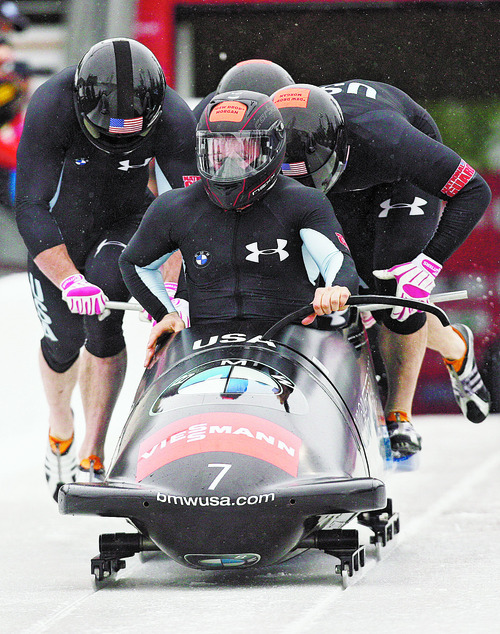This is an archived article that was published on sltrib.com in 2012, and information in the article may be outdated. It is provided only for personal research purposes and may not be reprinted.
Park City • It might have been the preview of an epic gold-medal bobsled showdown at the 2014 Sochi Olympics in Russia, the American defending champion against the longtime Russian rival hoping to finally win on home soil in probably his last major race before retirement.
Steven Holcomb just hopes it turns out differently, then.
The day after his second straight two-man triumph of the World Cup season, the defending world and Olympic champion from Park City lost his second straight four-man race to Russia's Alexander Zubkov on Saturday. The 38-year-old Russian blazed through the final run at the Utah Olympic Park with the fastest time of the day, clocking 47.95 seconds for a two-run total of 1:36.26 that kept Holcomb from sweeping the races in front of friends and family.
"I'll take second place," Holcomb said with a shrug. "It's still second place in a World Cup race. … It's hard to be upset, losing to Zubkov. He's pretty much the only one who's got more experience than I do."
Indeed, the Russian has been driving since 1999 — three years before Holcomb — and competed at four Olympics, including one in luge before switching sports. He has won silver and bronze medals at the Olympics, both ahead of Holcomb, and has won four World Cup championships in four-man compared with one for Holcomb.
Of course, Holcomb has the gold medal from the four-man race at the 2010 Vancouver Olympics, where Zubkov famously crashed on his second run on the difficult Whistler course, after having one of the fastest sleds in training.
"There's only one gold medal," Zubkov said through a translator, "and there's going to be a very difficult competition" in Sochi.
Both men downplayed the idea that they will be the headliners in Sochi, with both noting the traditionally powerful Germans, who finished third on Saturday after also finishing third in the two-man race that Holcomb won on Friday.
"The Germans will be in there," Holcomb said. "There's no doubt. They may not look like they're doing well right now, but they're going to come. They'll be in the mix. So it will be a good fight for Sochi."
There was no surprise in the men's skeleton race earlier, when Latvia's Martins Dukurs won for the fifth straight time on the World Cup circuit and 13th time in the last 14 races. Although the two-time defending world champion isn't crushing the opposition by huge margins the way he did last season, he did enough to clock 1:39.71 over two runs and beat Germany's Alexander Kroeckel by 0.05 seconds.
But the bobsled race was a bit of a shocker, considering nobody had won back-to-back four-man races to open the World Cup season since Holcomb did it five years ago.
"It was working conditions," Zubkov said. "It was a very fast competition, and I'm very satisfied."
Zubkov said he has been boosted this season by a coaching change last summer, when five-time Olympian Pierre Lueders of Canada replaced Oleg Sokolov, whose experience as only a push athlete and not a driver was seen as a hindrance.
He said he and his fellow Russians feel a great responsibility to perform well in Sochi — the first winter Olympics in their country — and Holcomb views him as a top challenger to his "very possible" dream of not only repeating as Olympic champion in the four-man, but also winning the two-man race.
"He can focus," Holcomb said. "He can get in the zone. He knows what to do. It's hard to beat that. There are certain sleds you can watch, and you're like, 'Oh, I'm gonna beat him. He's gonna choke on his run.' You just know it. … But when he gets up to the line, you're like, 'Aw, unless he makes a huge mistake, he's not going to lose time.' "
Especially not on his home track, most likely.
Zubkov will enjoy the benefit of many more training runs than Holcomb down the new course, which will make its international debut in the World Cup final on Feb. 15-17. But Holcomb noted that the Canadians had quite a few more training runs before Vancouver, too, "and we still beat them."
Holcomb made clear, though, that his rivalry with Zubkov is a friendly one, saying that "all the Russian guys are cool, they just don't speak much English."
Which means that postrace congratulations are more about the gesture.
"I went to shake his hand," Holcomb said, smiling. "He said something to me, and I said something to him, and neither one of us knew what we were talking about. You just smile and nod and shake hands." —
World Cup bobsled & skeleton
At the Utah Olympic Park
Men's Skeleton
Gold • Martins Dukurs, Latvia, 1:39.71
Silver • Alexander Kroeckel, Germany, 1:39.76
Bronze • Alexander Tretjyakov, Russia, 1:39.82
Four-Man Bobsled
Gold • Alexander Zubkov, Alexey Negodaylo, Dmitry Trunenkov and Maxim Mokrousov, Russia, 1:36.26
Silver • Steven Holcomb, Justin Olsen, Steven Langton and Curtis Tomasevicz, USA, 1:36.38
Bronze • Manuel Machata, Gregor Bermbach, Jan Speer and Christian Poser, Germany, 1:36.40


